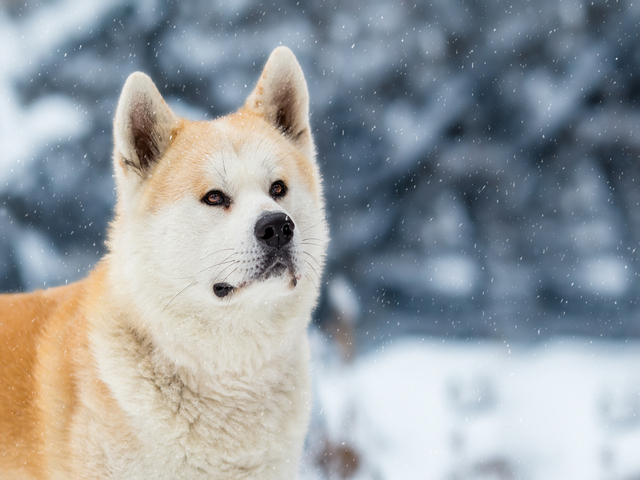Japanese Akitainu
No products found which match your selection.
Shelter Dog Meal Donation Count:
No products found which match your selection.
The Japanese Akita Inu is a loyal, courageous, and dignified breed, marked by its thick coat, strong guarding instincts, and reserved demeanor. Requires regular grooming and exercise to maintain its physical and mental well-being.
The Akita Inu is known for its unwavering loyalty and as a dignified and respectful companion. They are a symbol of good health, happiness, and long life in Japanese culture.

Originating from the northern region of Japan, the Akita Inu has a storied history as a versatile hunting dog, known for its bravery and strength. The breed has been esteemed throughout history, once only owned by the Japanese nobility.

Prone to hip dysplasia, autoimmune thyroiditis, and certain skin conditions. Regular health screenings and check-ups are essential.
Their thick, double coat requires regular brushing, especially during shedding seasons. Bathing should be done occasionally, as overbathing can strip natural oils.
Needs daily exercise to maintain health and happiness, such as walks and playtime in a securely fenced area. Exercise should be moderate, especially in hot weather due to their thick coat.
Intelligent but often independent; responds best to firm, consistent training. Early socialization and obedience training are crucial for a well-adjusted temperament.
Requires a well-balanced diet formulated for large breeds with moderate energy levels. Portion control and regular feeding schedules are essential to prevent obesity.
Caring for a Japanese Akita Inu involves understanding their unique needs and characteristics. They thrive in environments where they receive firm, consistent training, regular exercise, and the companionship of their family. With the proper care, including regular veterinary visits, appropriate nutrition, and sufficient exercise, the Akita Inu can be a loyal and majestic companion.
The Japanese Akita Inu, known for its dignified presence and loyalty, is generally a robust and hardy breed. However, like all breeds, they are predisposed to specific health conditions. Awareness of these issues and conducting recommended tests can aid in maintaining their health and well-being.
Understanding these common health issues and adhering to the recommended tests and preventive care guidelines can help ensure a long, healthy life for a Japanese Akita Inu. Collaboration with a veterinarian is critical to developing a health care plan tailored to your dog's needs.
The iHeartDogs Free Rx Discount Card Program is a pet prescription discount card that can help you save money on your furry friend’s medications. The card is free to sign up for, and you can use it at participating pharmacies nationwide. To use the free program, simply show the card to your pharmacist when you pick up your pet’s prescription. The pharmacist will then scan the card, and you will receive a discount on the price of the medication.LEARN MORE
Caring for a Japanese Akita Inu involves various expenses, depending on location, the dog’s age, health, and personal care choices. Here’s a breakdown of typical expenses:
Total Estimated Annual Cost:
$3285 - $7670
It's important to note that these figures are estimates and can vary. Also, the first year of owning a dog can be more expensive due to one-time costs like spaying/neutering, initial vaccinations, and training. Regular budgeting for your dog's needs and an emergency fund for unforeseen costs are essential for responsible pet ownership.
We rely on ads to keep creating quality content for you to enjoy for free.
Please support our site by disabling your ad blocker.
Continue without supporting us
If the prompt is still appearing, please disable any tools or services you are using that block internet ads (e.g. DNS Servers).